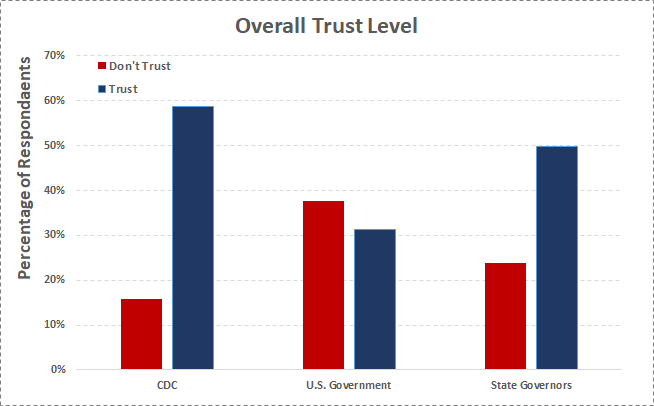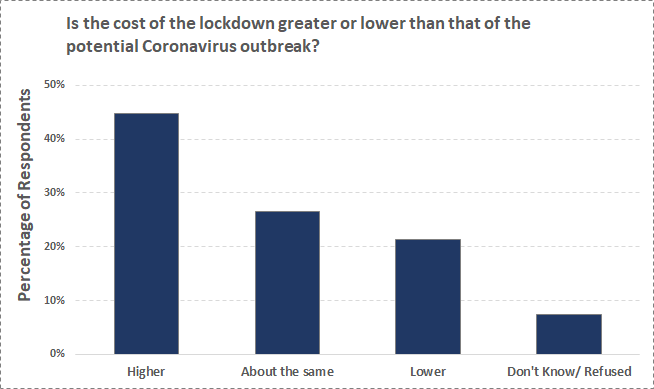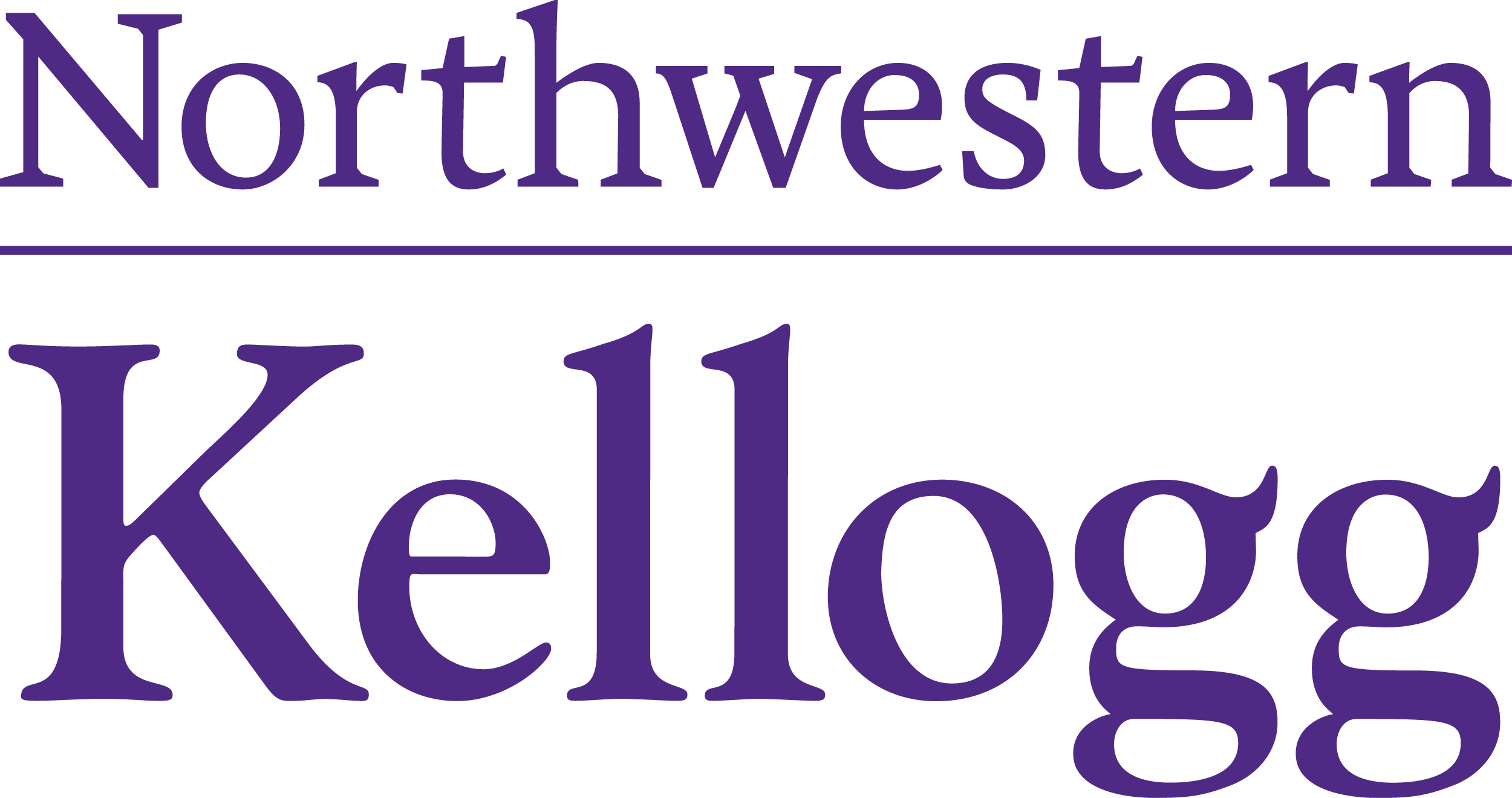|
Overall Trust Level

Perceived Cost of Lockdown

Efraim Benmelech, Paola Sapienza, and Luigi Zingales1
CHICAGO (April 17, 2020) — A special wave of the Financial Trust Index (FTI), which captures the level of trust that Americans have in institutions, shows a high level of compliance with the social-distance guidelines and the stay-at-home orders. The survey is administered by the University of Chicago Booth School of Business and Northwestern University’s Kellogg School of Management.
Key findings include:
- The Centers for Disease Control and Prevention (CDC) is the most trusted governmental institution.
The CDC is the most trusted institution, with approximately 59% of the respondents reporting trust in the center. State governors are the second most trusted (50% of respondents reporting trust) and the U.S. Government lags behind with only 31% of the respondents reporting trust.
- Almost half of the respondents believe that the economic cost of the lockdown is higher than the potential cost of the coronavirus outbreak.
Despite the high level of trust in the CDC, approximately 45% of the respondents believe that the total economic cost of the lockdown and the continued stay-at-home orders is higher than the cost of the coronavirus outbreak itself.
- Most Americans have worked from home in the previous week.
About 12% were unemployed at the time of the survey. Among those with a job about 51% worked from home in the previous seven days, and about 36% left their houses to go to work. Of those who left their houses, 50% responded that their job was deemed essential, 42% that their job cannot be performed from home, and they cannot afford to lose their job, and only 7% reported that their employer did not introduce that option. Nevertheless, the vast majority of these workers (approximately 95%) responded that they would not go to work if they presented any symptoms of coronavirus.
- Respondents are limiting their social contact and taking precautions when leaving their homes.
Approximately 79% of the respondents had close physical contact socially with fewer than six people in the previous week, and only 20% reported that they would not wear masks when going to buy groceries. Of those, 56% self-identified as republican or republican leaning, 31% as democratic or democratic leaning, and 12% as an independent. However, 96% of all respondents would not visit a grocery shop if they presented any symptoms of coronavirus.
ABOUT THE SURVEY: The Financial Trust Index captures the level of trust that Americans have in institutions. The study was conducted for the Financial Trust Index via telephone by SSRS, an independent research company. Interviews were conducted on April 6th, 2020 – April 12th, 2020 among US adults. A total of 980 interviews were conducted, with a margin of error for total respondents of +/-3.43% at the 95% confidence level. The study was conducted for the Financial Trust Index via telephone by SSRS, an independent research company. More information about SSRS can be obtained by visiting www.ssrs.com.
1 Efraim Benmelech Harold L. Stuart Professor of Finance and the Director of the Guthrie Center for Real Estate Research at the Kellogg School of Management at Northwestern University. Paola Sapienza is the Donald C. Clark/HSBC Chair in Consumer Finance Professor at the Kellogg School of Management at Northwestern University. Luigi Zingales is the Robert R. McCormack Distinguished Service Professor of Entrepreneurship and Finance and the Faculty Director of the George J. Stigler Center for the Study of the Economy and the State at the University of Chicago Booth School of Business.
|
|




